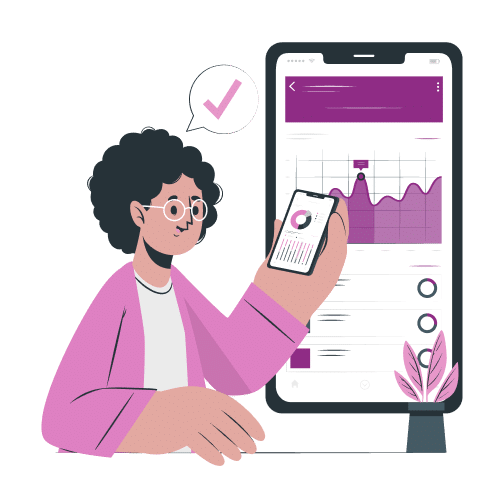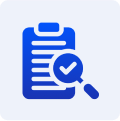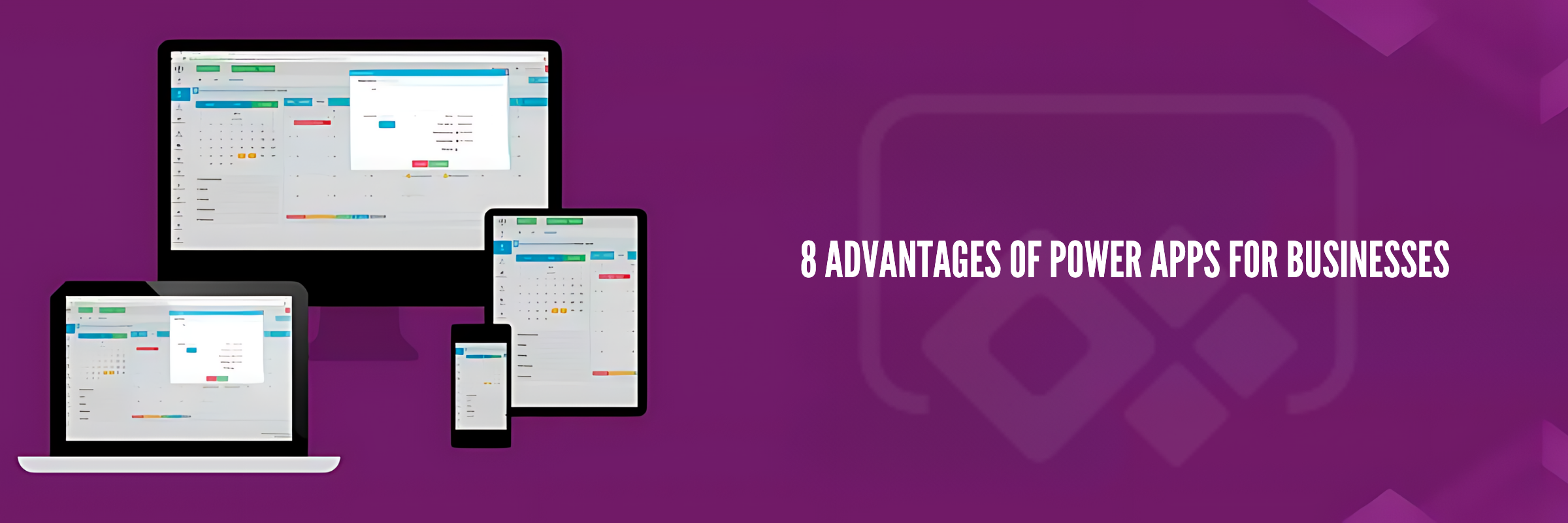
8 Advantages of Power Apps For Businesses
Suprabhat Sen | June 27, 2024 , 15 min read
Table Of Content
The business world is in a constant state of flux. New technologies emerge, customer expectations shift, and processes need to adapt. Businesses that can’t keep pace risk getting left behind.
In this dynamic environment, traditional, rigid software solutions are becoming increasingly cumbersome. Companies need tools that are flexible, responsive, and can be tailored to their specific needs.
This is where Microsoft Power Apps enters the scene. Power Apps is a low-code development platform that empowers businesses to build custom applications without the need for extensive coding expertise. With Power Apps, businesses can create solutions that streamline workflows, improve communication, and boost overall productivity. Let’s explore the eight key PowerApps advantages for businesses!
Key Takeaways
- Power Apps accelerates app development with a low-code, drag-and-drop interface, allowing businesses to build custom applications quickly and efficiently without extensive coding expertise.
- The platform democratizes app creation, enabling non-developers to design and deploy functional applications.
- By automating workflows, integrating data, and reducing manual tasks, Power Apps enhances efficiency, minimizing errors and freeing employees to focus on high-value activities.
- Power Apps ensures seamless accessibility across devices, supports mobile-friendly applications, and integrates with Microsoft services like Power BI and SharePoint.
- With a cost-effective subscription model and Microsoft’s built-in security features, Power Apps offers businesses an affordable, scalable, and secure solution for custom app development.
- Power Apps grows with your business, enabling easy modifications, integrations, and expansion, ensuring long-term adaptability and success in an evolving digital landscape.
8 Key Benefits of Power Apps for Businesses
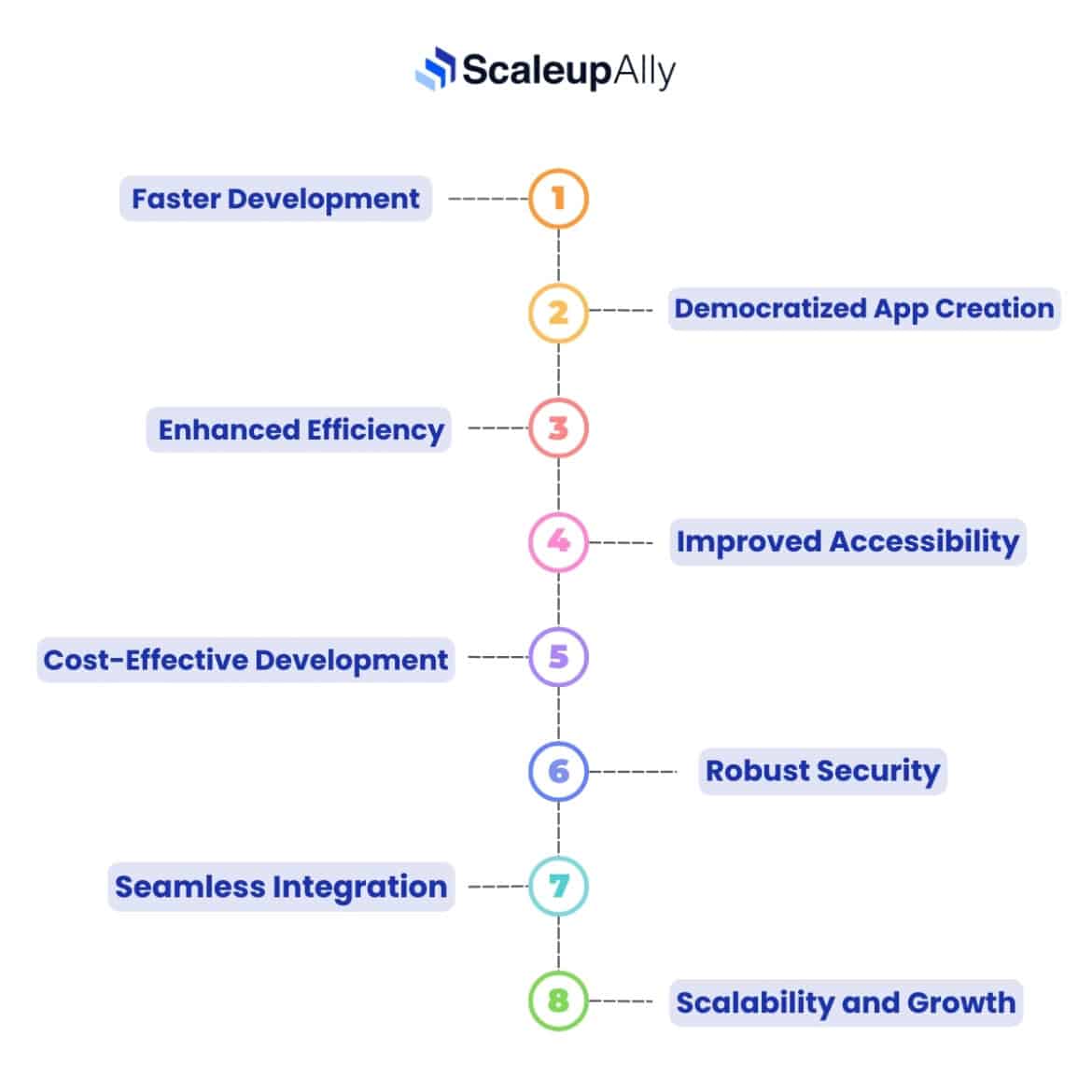
Traditional software development can be slow and expensive, hindering your ability to adapt to changing needs. Microsoft Power Apps offers a powerful solution: a low-code development platform that empowers businesses to build custom applications without extensive coding.
Here are eight key benefits of leveraging Power Apps for your organization:
1. Faster Development
Power Apps uses a drag-and-drop interface and pre-built components, significantly reducing development time compared to traditional coding. This allows you to get your apps up and running quicker, enabling faster problem-solving and process improvements.
One of the major advantages of PowerApps is its user-friendly interface, which eliminates the need for extensive coding knowledge. Even those with limited technical expertise can create functional and effective applications, thereby democratizing the app development process.
Moreover, Power Apps offers a range of pre-built templates and components that streamline the development process. These templates cover various business scenarios, allowing users to easily customize them to fit their specific needs.
This not only speeds up development but also ensures consistency and reliability in the applications created.
Additionally, Power Apps integrates seamlessly with other Microsoft services such as Azure, Office 365, and Dynamics 365, enhancing its functionality and allowing for more robust app solutions. This integration facilitates real-time data access and updates, which are crucial for effective decision-making and process automation.
2. Democratized App Creation
One of the most significant PowerApps advantages is that it doesn’t require professional developer skills. Business users with little to no coding experience can easily create simple yet effective apps tailored to specific needs within their departments.
This capability fosters innovation and empowers citizen developers—those who are not formally trained in software development but can create functional applications. By providing a user-friendly interface and drag-and-drop functionality, PowerApps enables users to design and deploy applications without writing complex code. This democratization of app development allows organizations to address unique challenges quickly and efficiently, improving productivity and operational efficiency.
PowerApps also integrates seamlessly with other Microsoft services and a wide range of third-party applications, further extending its versatility and appeal. As a result, businesses can leverage their existing tools and data to create customized solutions, fostering a culture of innovation and continuous improvement.
By empowering employees at all levels to contribute to the development process, PowerApps helps organizations remain agile and responsive to changing needs, ultimately driving better business outcomes.
3. Enhanced Efficiency
Power Apps streamlines workflows by automating manual tasks and integrating data from various sources, resulting in numerous benefits for businesses. One of the key PowerApps advantages is the reduction of errors. Manual processes are prone to mistakes, which can lead to costly delays and inefficiencies.
By automating these tasks, Power Apps ensures greater accuracy and consistency in operations. This automation also significantly saves time. Employees no longer need to spend hours on repetitive tasks; instead, these processes are handled swiftly and efficiently by the application.
Another important aspect of Power Apps is its ability to integrate data from various sources. This integration provides a unified platform where all necessary information is accessible in one place, eliminating the need to switch between different applications or databases. This holistic view enhances decision-making and improves overall productivity.
Ultimately, the time saved and the reduction of errors allow employees to focus on higher-value activities. They can dedicate more time to strategic planning, creative problem-solving, and other tasks that require human insight and ingenuity.
4. Improved Accessibility
Power Apps ensures your applications are mobile-friendly and accessible from any device, whether it’s a smartphone, tablet, or desktop. This seamless accessibility empowers your workforce to stay productive on the go, regardless of their location.
Employees can easily access critical business applications and data from their preferred devices, ensuring they have the tools they need to perform their tasks efficiently. This mobility enhances productivity and flexibility, enabling your team to respond swiftly to business needs and customer demands.
PowerApps has a unique ability to bridge the gap between desktop and mobile platforms, providing a consistent user experience across all devices. This means that your applications will look and function similarly, whether accessed from a desktop in the office or a smartphone on the road.
Furthermore, Power Apps supports a wide range of integrations, allowing your mobile applications to seamlessly connect with other Microsoft services and third-party applications. This integration capability ensures that your workforce has a unified and streamlined workflow, enhancing overall operational efficiency.
Additionally, Power Apps’ intuitive design tools enable quick and easy development of mobile applications, reducing the time and resources needed to deploy solutions. This agility is a significant PowerApps advantage, allowing businesses to rapidly adapt to changing market conditions and internal requirements.
Wanna build Power Apps Like a Pro!
Get your FREE checklist to craft user-friendly, responsive, and impactful apps now.
5. Cost-Effective Development
Power Apps offers a subscription-based model, which eliminates the hefty upfront costs typically associated with traditional app development. This pricing structure makes it an appealing, budget-friendly solution for businesses of all sizes.
Instead of investing a significant amount of capital in the initial development phase, businesses can opt for a manageable, predictable monthly subscription. This model democratizes app development, allowing even small businesses with limited budgets to access powerful app-building tools.
One of the most popular advantages of Power Apps is its cost-effectiveness. By reducing the financial barrier to entry, Power Apps enables businesses to innovate and customize their solutions without breaking the bank.
This subscription model also includes regular updates and access to new features, ensuring that businesses always have the latest tools at their disposal without incurring additional costs.
Moreover, the advantages of Power Apps extend beyond cost savings. The platform’s user-friendly interface and pre-built templates allow for rapid development and deployment of applications, reducing the time and resources required to bring an app to market.
This efficiency can be particularly beneficial for small to medium-sized enterprises looking to streamline their operations and improve productivity without significant financial investment.
Also Read: The Complete Cost Breakdown of Building Power Apps
6. Robust Security
Leveraging Microsoft’s robust security infrastructure, Power Apps ensures your data is protected with advanced role-based access control and built-in compliance features. This means that only authorized users can access specific data and functionalities, reducing the risk of unauthorized access and potential data breaches.
One of the key Power Apps benefits is its ability to seamlessly integrate with Microsoft’s suite of security tools, providing an extra layer of protection for your sensitive information. Additionally, Power Apps complies with various industry standards and regulations, ensuring that your applications meet stringent security requirements.
For businesses, this translates into peace of mind, knowing that their critical data is safeguarded against cyber threats. By utilizing Power Apps, organizations can confidently develop and deploy custom applications without compromising on security. The platform’s security features are designed to cater to a wide range of industries, from healthcare to finance, making it a versatile solution for protecting sensitive data.
Furthermore, the continuous updates and enhancements from Microsoft ensure that Power Apps remains a secure and reliable tool for business operations, emphasizing its role as a secure and compliant app development platform.
This robust security infrastructure is one of the many benefits of Power Apps that make it a preferred choice for organizations aiming to enhance productivity while maintaining stringent security standards.
7. Seamless Integration
Power Apps integrates seamlessly with other Microsoft products like Power BI and SharePoint, fostering a unified data ecosystem within your organization. This seamless integration is one of the key benefits of Power Apps, as it simplifies data analysis and collaboration.
By connecting with Power BI, users can easily create, share, and act on insights from their data, driving informed decision-making across the organization. The synergy with SharePoint further enhances collaboration by allowing users to build apps that leverage the document management and sharing capabilities of SharePoint.
This results in a streamlined workflow where data is accessible and actionable from a single platform, eliminating the need for multiple disjointed tools.
Additionally, Power Apps’ integration with other Microsoft services like Dynamics 365 and Office 365 means that businesses can automate processes, generate comprehensive reports, and improve overall productivity without extensive technical expertise.
The benefits of Power Apps extend to enabling non-developers to create custom apps tailored to specific business needs, reducing reliance on IT departments. This democratization of app development not only accelerates digital transformation but also ensures that solutions are closely aligned with user requirements.
8. Scalability and Growth
Power Apps provides a robust platform for building applications that can grow and adapt alongside your business. One of the significant benefits of PowerApps is its flexibility, allowing you to modify and expand existing apps effortlessly as your business needs evolve. Whether you need to add new functionalities or improve current features, Power Apps makes it simple to scale your applications without starting from scratch.
For instance, as your business processes become more complex, you can integrate additional data sources, automate tasks, and implement more sophisticated workflows. This adaptability ensures that your applications remain relevant and effective, supporting your operations at every stage of growth.
Moreover, Power Apps supports collaboration among teams, enabling multiple users to work on app development simultaneously, which speeds up the iteration and improvement process. This collaborative environment, combined with the ease of integrating other Microsoft tools, positions Power Apps as a powerful solution for businesses looking to stay agile and responsive in a constantly changing market.
With these capabilities, you can be confident that your applications will continue to meet your business’s demands, driving efficiency and innovation.
How ScaleupAlly Can Help You Leverage the Benefits of Power Apps?
Microsoft Power Apps provides a platform for creating custom applications that streamline operations and drive innovation. ScaleupAlly can help you fully leverage Power Apps, transforming your business with tailored solutions, expert development, and seamless integration.
At ScaleupAlly, we understand that every business is unique. We work closely with you to identify areas where Power Apps can bring the most value, developing custom applications that align with your specific needs. Our skilled developers have extensive experience in building user-friendly applications that are both functional and intuitive.
Integration with existing systems is a key strength of Power Apps. ScaleupAlly excels at integrating Power Apps with your current IT infrastructure, including SharePoint, Microsoft 365, Dynamics 365, and third-party applications. This ensures a unified and efficient workflow across your organization.
We also focus on empowering your workforce by designing user-friendly applications that enhance collaboration and productivity. With our solutions, your employees can access critical information and perform tasks on the go, making your operations more agile.
Our commitment to your success extends beyond implementation. ScaleupAlly offers ongoing support and maintenance to keep your Power Apps running smoothly. We also provide comprehensive training to ensure your team is well-versed in using and managing the platform.
ScaleupAlly is your trusted partner in harnessing the power of Power Apps. Our tailored solutions, expert development, seamless integration, and ongoing support help you drive innovation, enhance productivity, and achieve your business goals. Contact us today to learn more.
Conclusion
Microsoft Power Apps equips businesses with a powerful tool to overcome the limitations of traditional software development. With its low-code approach, Power Apps empowers both citizen developers and professional programmers to create custom applications that address your specific needs.
From streamlined workflows to enhanced accessibility and robust security, Power Apps offers a multitude of benefits that can propel your business forward.
If you’re looking for a way to increase efficiency, boost productivity, and gain a competitive edge, consider exploring the potential of Microsoft Power Apps. It’s a cost-effective solution that can empower your organization to thrive in the ever-evolving business world.
Frequently Asked Questions (FAQs)
Q: How useful are Power Apps?
Power Apps are highly useful for quickly building custom business applications with minimal coding, allowing businesses to streamline processes and improve productivity.
Q: What types of apps can I build with PowerApps?
You can build a variety of apps with Power Apps, including canvas apps, model-driven apps, and portal apps, suitable for tasks like data entry, workflow automation, and customer engagement.
Q: Is Power Apps secure?
Yes, Power Apps is secure. It leverages Microsoft’s security infrastructure, including data encryption, user authentication, and role-based access control to ensure data protection.
Q: How much does PowerApps cost?
PowerApps pricing starts with a per-app plan at $5 per user/month, and a per-user plan at $20 per user/month, with additional pricing options available for enterprise needs.
Q: Can Power Apps integrate with non-Microsoft applications?
Yes, Power Apps can integrate with a wide range of non-Microsoft applications by using connectors and custom APIs, enhancing its flexibility and utility in diverse environments.
Related Blogs
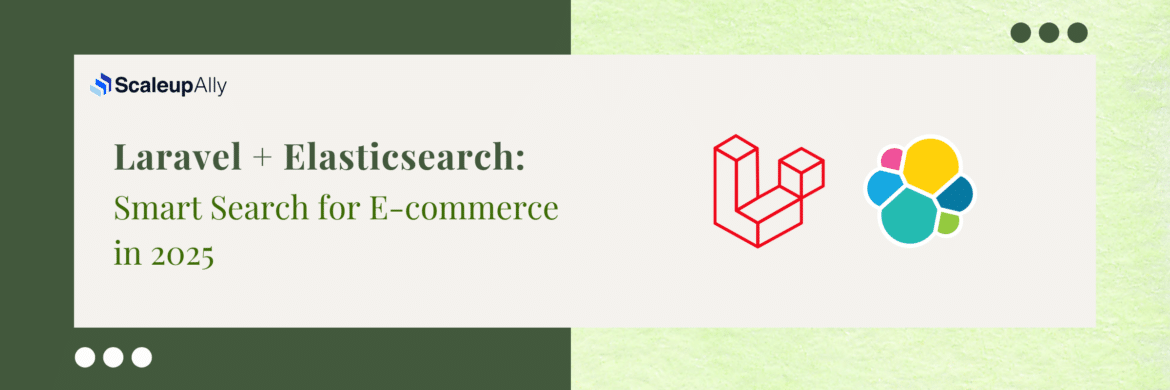
Laravel + Elasticsearch: Smart Search for E-commerce in 2025
Learn how to integrate Elasticsearch with Laravel, from setup and configuration to indexing. Improve your app's search performance using Laravel Elasticsearch.
ScaleupAlly Team
Jul 3 ,
15 min read
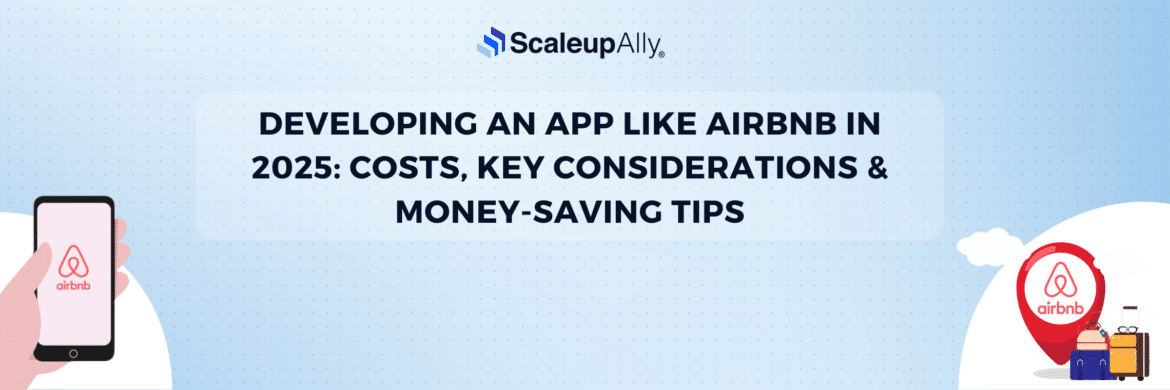
Developing an App Like Airbnb in 2025: Costs, Key Considerations & Money-Saving Tips
Discover the cost to build an app like Airbnb, key factors, app types, and smart ways to optimize development expenses for better ROI.
Suprabhat Sen
Jun 29 ,
10 min read

Flutter vs Android Studio: What are the Key Differences?
Flutter vs Android Studio: Wondering which technology to choose to build your next app. Here is a detailed guide that will help you make a decision.
Suprabhat Sen
Jun 28 ,
14 min read

